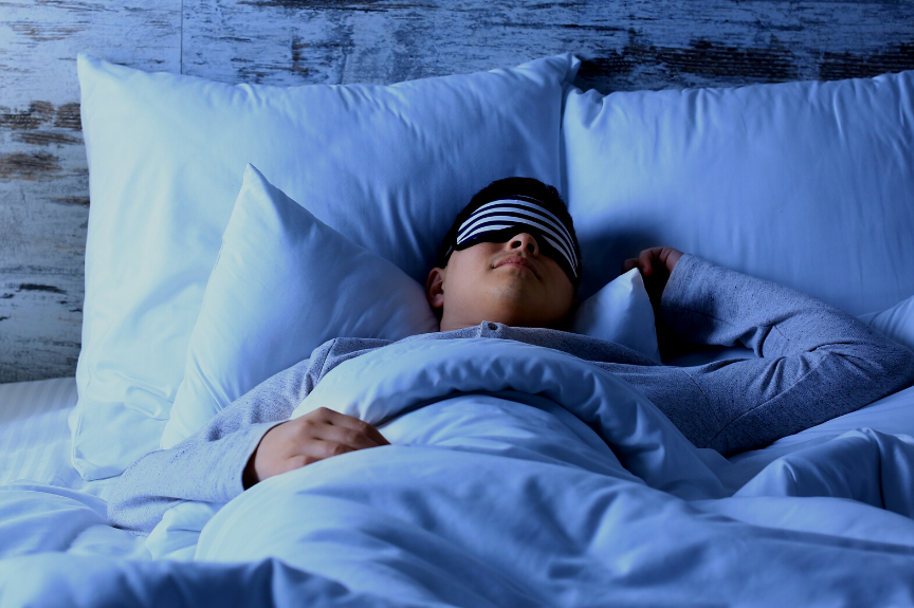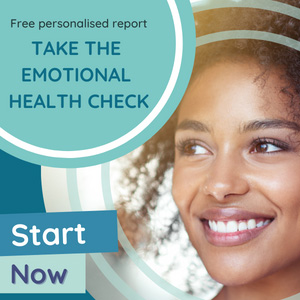If you're living with anxiety and find it hard to get to sleep or stay asleep each night in this article, I'm going to explain what anxiety is, why anxiety affects your sleep and what you can do to start sleeping better again?
How does Anxiety affect your Sleep video
Watch my video to learn how affect impacts our sleep and find out how hypnotherapy can help you to take control of your anxiety and achieve better sleep.
What is Anxiety?
Anxiety is a feeling of worry and unease, those feelings you get when you are tense or afraid causing you to feel anxious and worried about almost any situation rather than anything specific. You may not recall when you last felt relaxed. As soon as one anxious thought is dealt with, it is replaced by another, caught in a trap of negative thinking. Anxiety can affect your thoughts, feelings, physical sensations and can continue even when the cause of anxiety is not clear to you.
So it's no wonder it leads to sleepless nights because the anxiety and worry leads to ruminations about concerns at bedtime increases anxiety at night and stops you sleeping. So why does that happen and what can be done?
What does Anxiety Stop me Sleeping?
When you're anxious or if you're living with anxiety disorders, they encourage you to worry about every situation and create prolonged periods of negative stress, and so your brain begins to actually lose access to your natural resting state, keeping your flight or fight system engaged. It becomes difficult to fully relax, rest and sleep deeply at night.
It's a vicious cycle, because when you're already feeling anxious and stressed, your brain is maintaining a heightened state of alert, it encourages you to be negative and worry about what happened today, tomorrow and fills you with dread as you imagine the worst. It's a way to encourage you to avoid threats, and often the things you actually want to do! Unfortunately this only serves to confirm to your anxious mind that avoiding things is the best way to survive and so it encourages to do more of the same.
It would have been helpful back in primitive times when there were real threats around. Dangerous animals, hostile tribes and we had to fight for survival, but so helpful in our modern lives.
It's hard to relax and sleep because your body becomes very tense and your mind ruminates on all sorts of situations and in this state, your imagination takes over and your brain forms all sorts of new neural pathways which create maps for all kinds of future perspectives and emotions, which are all based on a negative thought pattern and the mental state you find yourself in that moment.
The problem is your thoughts are so powerful and the brain can't tell the difference between real or imagined events, it believes everything you tell it. So everything that you think about might as well be happening to you and if it's negative thought, it's converted into more anxiety which affects the way you live your life - creating more anxious, fearful and negative thinking, which often results in poor interactions with other people, it interferes with your clarity of thought, your confidence and your ability to enjoy life and so we end up in a state of emotional paralysis.
Can Anxiety and Sleep Issues Go Away?
Is it possible to stop anxiety taking over and start sleeping again? Well, the short answer is yes, but it often isn't an immediate quick fix, instead expect to see a gradual improvement as you focus on certain things that helps you feel calmer so you can relax before sleeping and more specific ways that research shows reduces anxiety and leads to more positive thoughts and behaviours, breaking the cycle of anxiety and dread. And as you do, sleep will improve, and anxiety will reduce as you shift the unwanted thoughts, behaviours and habits.
So, start by giving yourself the best possible chance of sleeping. And often small things can really make a big difference, such as avoiding eating too late, because digestion is an active process, avoiding caffeine in the afternoons and evenings and cutting out alcohol. We know all these things have a direct impact on our ability to sleep.
And simple things to improve your environment will help too where the bed is comfortable, the room is dark and cool - really make sure your bedroom is a place of calm relaxation, removing anything that might act as a distributor to sleep - and this is really important because your mind is so sensitive to associations.
If you want to find out more about the key things that get in the way of sleeping, you can download my guide, 7 Mistakes that Stop You Sleeping and How to Fix Them.
How do I Reduce my Anxiety?
Start by reminding yourself to focus on the positives in life, when you do, it reduces the amount that we habitually worry about. As with anything, especially when you're anxious it can be difficult to find something positive, but start with the small things, like the clear blue sky, that person that smiled or that 'well done' email from your boss. It is the first step in building new healthy patterns which break the cycle of negative thinking and worry.
The more you practice noticing the positive things in life, even the small things or perhaps things you're grateful for, it all helps strengthen the positive connections in your brain, which helps you begin rewiring your brain for happiness.
One of my favourite ways to do this, especially as a part of a bedtime routine, is journaling. Keep it positive and very simply write down four or five things which have been good today. Anything. It just helps to refocus your mind. The more you practice doing this, you'll find yourself noticing more and more good things each day!
There is also plenty of evidence and research to suggest that there are other certain activities which help reduce anxiety so you can sleep better. They help to reduce your stress hormones and boost your positive neurochemicals such as serotonin, oxytocin, dopamine and endorphins.
- Positive Action - Getting on with things your like, moving and taking exercise reducing stress chemicals and boosting your endorphins
- Positive Interactions - Find ways to see or chat to people you like, it will increase serotonin and oxytocin which enhances your mood and again reduces stress levels.
- Positive Thinking - as we've already discovered, switches the focus in your mind and breaks the cycle of negative thinking and can quickly become a healthy habit. It reduces your fight or flight response and boosts your mood and confidence
How to Relax Your Mind Before Sleeping
Learning to physically relax really makes a big difference. Learn to focus on being relaxed and calm. Our brains respond to everything we tell it, so it's not about being 'less stressed' it's about thinking about relaxed and being calm. When you begin to think of the word 'relaxed' you know what that feels like. What makes you feel relaxed? Keep a list to refer to, relaxing music, having a bath, walking with the dog - what do you enjoy doing that calms you down?
When it comes to bedtime, you may find listening to guided relaxation helps, I give my clients my guided hypnosis track to listen to at bedtime, it guides them into a deeply relaxed state, into trance which helps bring on the REM state, so they can drift off to sleep and empty their buckets helping them build more positive thought patterns subconsciously as they listen to the suggestion made.
So, will Sleep Improve and Anxiety Go Away?
When you're ready for change and put in consistent practices and make improvements to your routines, and challenge negative thoughts, change can happen. In my online therapy practice, I use Solution Focused Hypnotherapy, it's a powerful combination of talking therapy with hypnosis which helps clients reduce your general levels of anxiety and calm your thoughts at night. It helps to create healthier thought habits too, so you can let go of negative thinking or worry easily.
If you're ready to sleep better and relieve your anxiety, with Solution Focused Hypnotherapy, I would love to help. Start by getting in touch to book your initial session online where we can fully discuss your situation and tailor a hypnotherapy program to support your positive changes.







